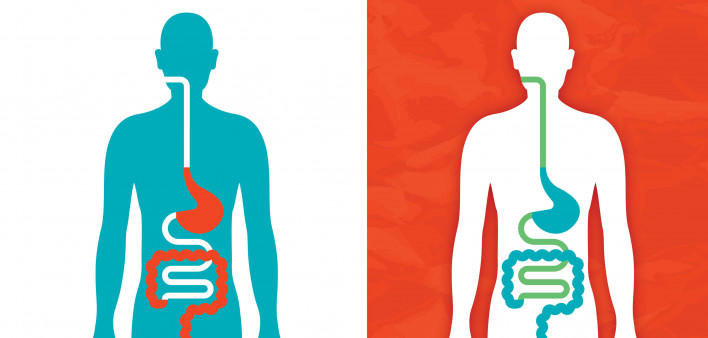Gut microbiomes may differ based on whether men have sex with men or women, and the specific community of microbes in the guts of those who have sex with men are apparently associated with a higher risk of HIV.
Publishing their findings in PLOS Pathogens, researchers studied stool samples taken from 18 HIV-negative men who have sex with women (MSW), 19 HIV-negative men who have sex with men (MSM) and, as controls, 12 HIV-positive MSM. The investigators transplanted the samples into mice.
Among the animals that received the transplants from the HIV-negative MSM, CD4 cells became more activated compared with those that received transplants from MSW. This difference would render the former group of mice more susceptible to HIV acquisition.
The researchers also isolated immune cells from the intestines of the HIV-negative participants and exposed them in the laboratory to bacteria from fecal samples from MSM and MSW. Next, they exposed these cells to HIV and found that the cells exposed to the MSM fecal bacteria were more likely to become infected with the virus.
“These results provide evidence for a direct link between microbiome composition and immune activation in HIV-negative and HIV-positive MSM and a rationale for investigating the gut microbiome as a risk factor for HIV transmission,” said the study’s senior author, Brent Palmer, PhD, an associate professor of medicine in the division of allergy and clinical immunology at the University of Colorado School of Medicine in Aurora.
Why the microbiomes of MSW and MSM differ remains unknown.
To read a press release about the study, click here.
To read the study, click here.







Comments
Comments